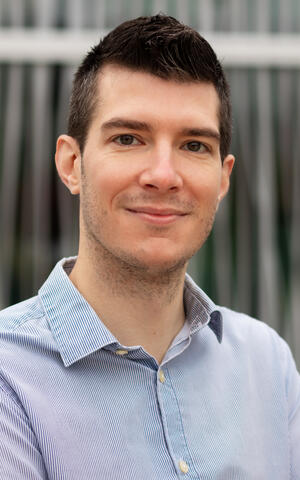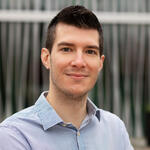Award for stem cell scientist Simon Haas
New methods succeed in unraveling open questions of cell biology and expanding, even sometimes challenging prevailing knowledge. This is what this year's three winners of the German Stem Cell Networks Award 2022 are achieving. The "GSCN 2022 Young Investigator Award" is going to Simon Haas. The cancer researcher works in the joint research focus "Single Cell Approaches for Personalized Medicine" of the Berlin Institute of Health (BIH), the Charité – Universitätsmedizin and the Max Delbrück Center for Molecular Medicine (MDC) in Berlin. While GSCN Young Investigator Simon Haas is newly defining the well described system of blood stem cells with his new insights, Meritxell Huch from the Max Planck Institute for Molecular Cell Biology and Genetics (MPI-CBG) in Dresden is using liver organoids to explore the fundamental regenerative capacity of human tissue. She receives the "GSCN 2022 Hilde Mangold Award". The GSN Publication of the Year also turns an established model of cell biology on its head: the centrosome is not the same in all cells, as previously thought. This prize goes to Adam C. O-Neill, Fatma Uzbas, Giulia Antognolli and Florencia Merino, as well as Magdalena Götz of Helmholtz Munich and Ludwig-Maximilians-University Munich (LMU).
With the GSCN Awards 2022, the German Stem Cell Network recognizes outstanding stem cell researchers on their way to expand basic research and open up new avenues for therapeutic options. The awards will be presented at the GSCN Conference 2022 on September 15, 2022 in Münster, Germany.
The GSCN has been networking stem cell researchers working in Germany nationally and internationally since 2013 and communicates their results and research to a broad public. The promotion of young scientists and the presentation of outstanding female scientists receive special attention at the GSCN with the "GSCN Hilde Mangold Award".
About Simon Haas
Simon Haas
Dr. Simon Haas receives the award for his excellent research about the complex interplay between the immune system, blood stem cells, cancer cells and factors from the cellular environment. To this end, Simon Haas and his research group are developing novel single-cell and spatially resolved technologies. With his set of complex methods, Simon Haas has redefined the map of how blood cells arise from blood stem cells. In addition, Simon Haas' laboratory is developing highly accurate, personalized diagnostic and prognostic approaches based on single-cell technologies. These newly developed approaches will enable early disease detection and personalized treatment strategies with the long-term goal of therapeutically preventing cancers before their onset.
Simon Haas studied Molecular Cell Biology, Biochemistry and Molecular Biosciences at Heidelberg University, Imperial College London and the German Cancer Research Center (DKFZ). He received his PhD from DKFZ and Heidelberg University in 2016. Simon performed research at DKFZ, Massachusetts Institute of Technology (MIT) and Harvard. In 2016 he became research group leader at HI-STEM and the DKFZ. As of 2020, Simon is an independent group leader at the BIH, the Charité and the Berlin Institute of Medical Systems Biology (BIMSB) at the Max Delbrück Center in Berlin, Germany.







